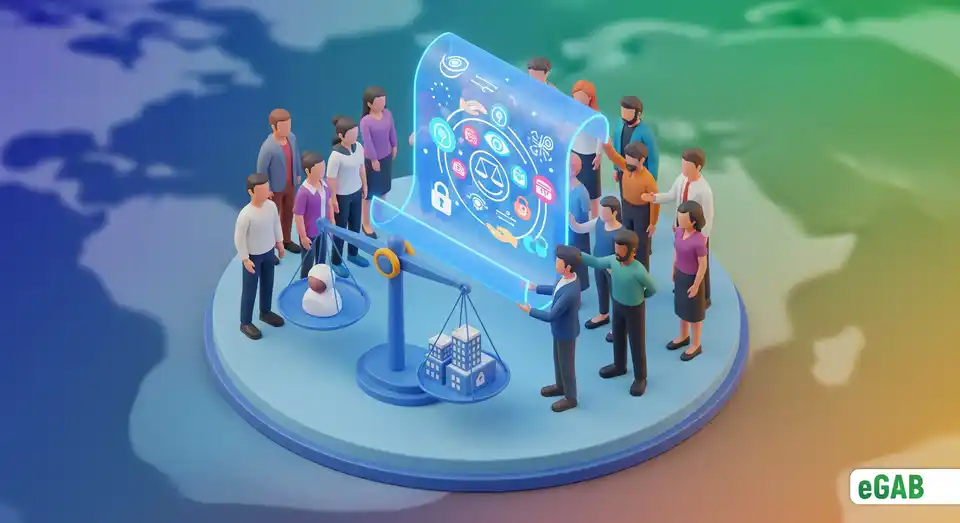What Is GDPR? Understanding the EU’s Data Privacy Law
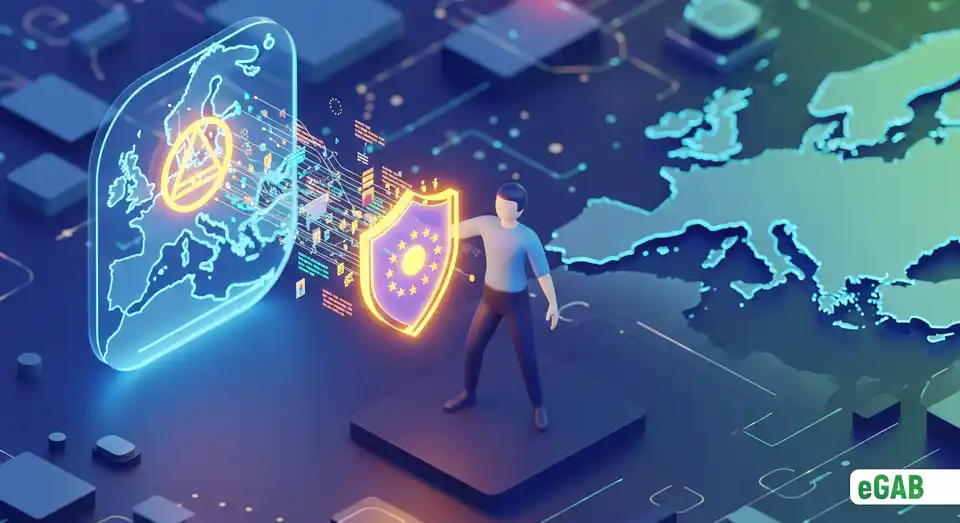
 Author:
Artem Grigoriev
Author:
Artem Grigoriev
Ever stared at a website’s cookie banner and wondered what you're really agreeing to when you hit “Accept”? That moment of hesitation highlights a huge modern problem. It often feels like your personal data has a life of its own online.
That's the exact issue the General Data Protection Regulation (GDPR) was built to solve. It’s the European Union's landmark EU data privacy law . But don't think of it as just another piece of complex legal text; the GDPR is a powerful rulebook that puts you back in control. The law establishes your rights over how your information is collected, used, and protected. This plain-English guide will break it all down for you. We’ll explore what GDPR is, who it applies to, the eight fundamental rights it grants you, and what, surprisingly, now counts as your personal data.
What is GDPR in simple terms?
Have you ever paused before clicking "Accept" on a cookie banner , wondering where your personal data really goes? You're definitely not alone. If you've been searching for "GDPR explained simply," you've come to the right place. In simple terms, the General Data Protection Regulation (GDPR) is the European Union's powerful answer to that very question. You can think of it as a digital bill of rights for your personal information, a regulation that officially went into effect on May 25, 2018. This foundational EU data privacy law sets a new global standard for how organizations must behave.
Its main goal is to put you, the individual, back in the driver's seat, giving you control over how companies are allowed to use, store, and share your data. The law lays down strict, non-negotiable rules that any organization must follow when handling the personal details of anyone living in the EU. This mandate also extends to the European Economic Area (EEA), which includes countries like Iceland, Liechtenstein, and Norway that are part of the EU's single market. The law requires these organizations to be transparent about what they're doing and to have a legitimate, legal reason for collecting every single piece of your information. So, who does GDPR apply to? Here’s the crucial part: it makes no difference if a company is based in California or Tokyo. If they provide services to people located in the EU, they absolutely must play by the General Data Protection Regulation's rules (official text) . This directly answers the common question: do US companies need to comply with GDPR? Yes, they do, if they serve EU customers.
A key part of understanding GDPR for business is knowing the two primary roles an organization can play. So, what is the difference between a data controller and a data processor? The data controller is the organization that decides why and how personal data is processed (for example, the online store you buy from). The data processor is a separate company that processes data on the controller's behalf (like a third-party payment gateway or cloud storage provider). Under these EU privacy regulations , both have separate but equally important responsibilities.
Why this matters: This law fundamentally changes your relationship with businesses online. It means your data isn't just a commodity to be bought and sold; it's your personal property. In effect, companies are temporary guardians with a profound duty to handle it with the utmost respect.
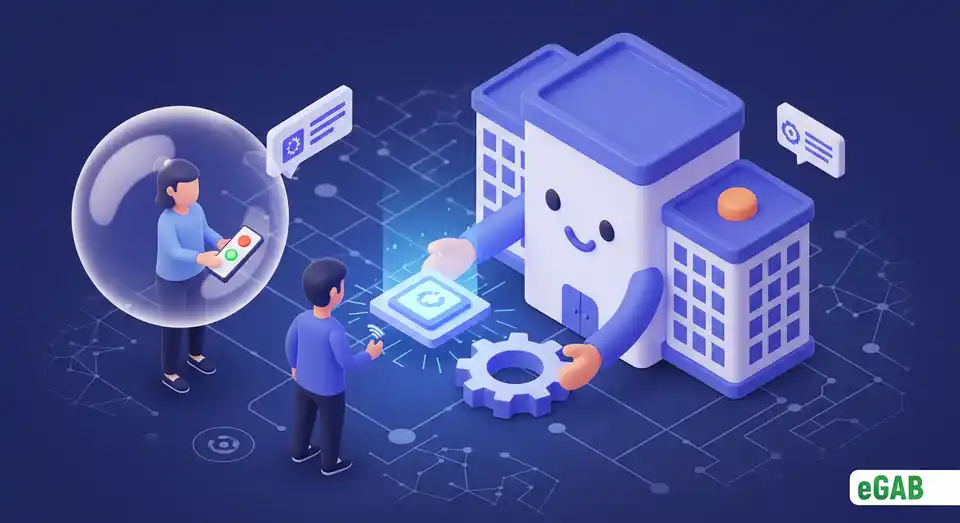
What Are the Core Principles of GDPR?
To make sure companies handle your data correctly, GDPR is built on seven core principles, which are laid out clearly in Article 5 of the regulation. Answering " What are the 7 principles of GDPR? " is the key to understanding its entire framework. You can think of these as the definitive "golden rules" of data privacy that every single organization must follow. These aren't just suggestions; they are the very foundation of the law itself.
- Lawfulness, Fairness, and Transparency: Companies must have a legal reason for processing your data. This often means getting your explicit consent , which you must give freely and for a specific, clear purpose. They also have to be completely upfront and honest with you about this process. That means no more hiding what they're doing behind confusing and dense legal jargon.
- Purpose Limitation: An organization can only collect your data for a specific, clearly stated purpose. If they decide they want to use it for something completely new, they generally have to get your permission first.
- Data Minimisation: Organizations should only collect the absolute minimum amount of data they need. They should only take what's truly essential to do their job. For example, if they don't need your date of birth for a simple newsletter subscription, they have no business asking for it.
- Accuracy: The information companies hold about you must be accurate and kept up to date. You have the right to get any mistakes corrected quickly.
- Storage Limitation: Companies aren't allowed to hold onto your data forever. Once your information is no longer needed for the original reason it was collected, it must be deleted.
- Integrity and Confidentiality: This is known as the security principle. Companies have a fundamental duty to protect your data with strong data security . They must implement specific measures like encryption and access controls, which are designed to stop your data from being lost, destroyed, or accessed by anyone who shouldn't see it.
- Accountability: The burden of proof-the responsibility to show they're compliant-falls squarely on the organization. They have to be able to prove that they're actively following all of these GDPR core principles . Many organizations appoint a Data Protection Officer (DPO) to oversee this process, and for high-risk activities, they are required to conduct a Data Protection Impact Assessment (DPIA) to identify and reduce risks. Ultimately, the buck stops with them.
Reaching this level of compliance requires a proactive approach known as Privacy by Design , where data protection is built into systems and processes from the very beginning, not tacked on as an afterthought. So, if you're wondering, " How do I make my website GDPR compliant? " the only true answer is to embrace these principles and embed them into your operations.
The bottom line: These principles shift the entire responsibility from you to the organization. It's now their job to proactively protect your information; it's not your job to chase them down to make sure they're doing the right thing.
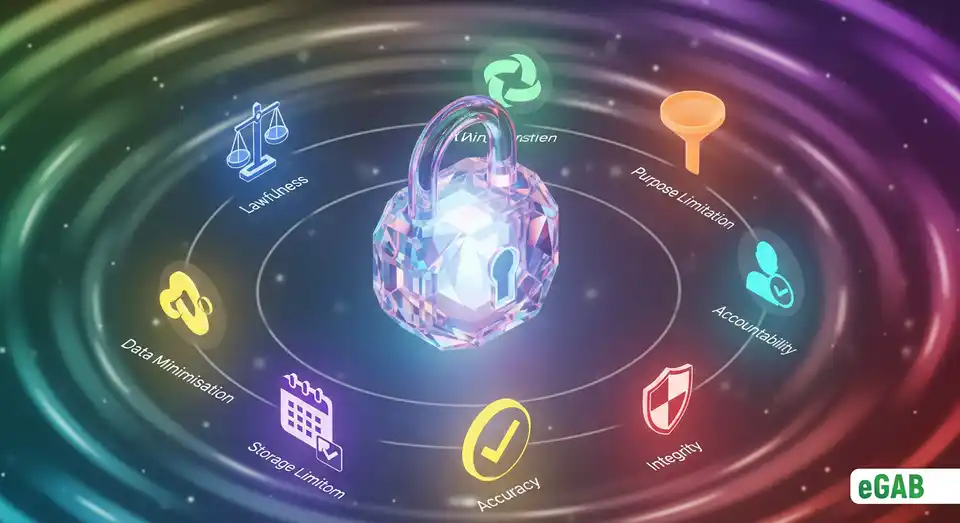
What Rights Does GDPR Give to Individuals?
GDPR doesn't just set rules for companies; it gives you a powerful set of rights to help you manage your own data. In legal terms, you're the data subject , and these are your individual rights under GDPR . Think of them as your personal digital superpowers, allowing you to take firm control of your personal information. So, if you're asking, " What rights do I have under GDPR? ", the answer is: quite a few. The European Data Protection Board (EDPB) works hard to make sure these rights are applied consistently across the EU.
- The Right to Be Informed: You have the fundamental right to know exactly how an organization is collecting and using your data. They have to give you this information in clear, easy-to-understand language.
- The Right of Access: You can ask any organization, "What information do you have on me?" By law, they must provide you with a copy of that information, typically for free.
- The Right to Rectification: If you find a mistake in your personal data, you have the right to demand that the organization correct it without unreasonable delay.
- The Right to Erasure: This is famously known as " the right to be forgotten ." Under specific conditions, this lets you request the complete deletion of your personal data. So, what is the 'right to erasure'? It's the official legal tool that gives you the power to have your personal history wiped from a company's servers.
- The Right to Restrict Processing: In certain situations, you can tell a company to stop using your data, even though they might still be allowed to store it for specific reasons.
- The Right to Data Portability: This important right lets you take your data from one service provider and easily move it to another. This makes it much easier to switch platforms without losing your valuable information.
- The Right to Object: You have an absolute right to stop your data from being used for direct marketing. No questions asked.
- Rights in Relation to Automated Decision Making: You have the right not to be subject to a decision made only by an algorithm (a computer program), especially if that decision has a major legal or personal impact on you.
Try this for yourself: Curious what a major tech company knows about you? Go exercise your "Right of Access." Just head to the privacy section of a service you use often, like Google, Facebook, or Apple, and look for the option to download all of your data. You might be surprised by what you find.
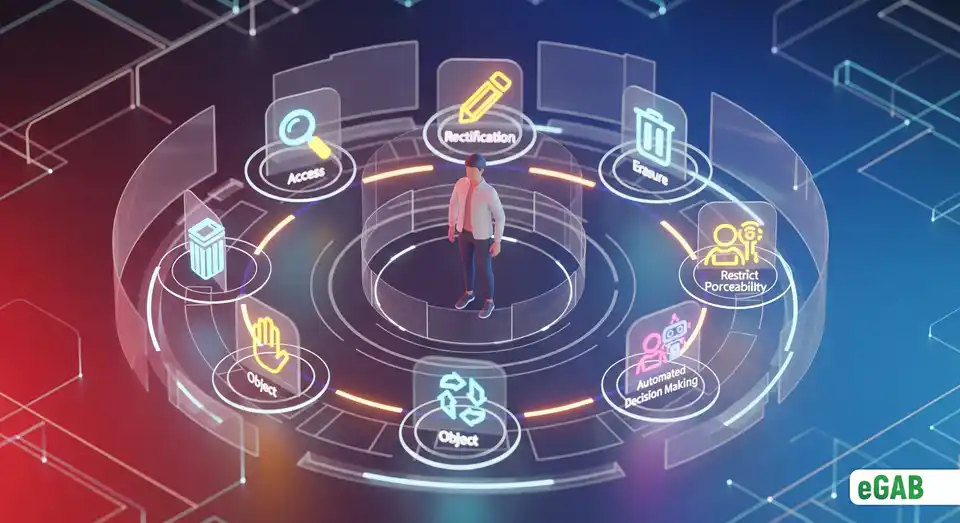
What Counts as Personal Data Under GDPR?
When you ask, " What is considered personal data under GDPR? ", the answer might surprise you. Under GDPR, the term "personal data" is incredibly broad-and that’s completely by design. As defined in Article 4 of the regulation, it covers much more than just your name and email. The official personal data definition GDPR provides is any information that can be used to identify a living person, whether directly or indirectly.
Of course, this includes the obvious identifiers like your name, home address, and email address , as well as things like an ID card number . And while you might know these as Personal Identifiable Information (PII) , the GDPR’s reach goes much deeper. The law actually protects your entire digital footprint. That means things like your computer's IP address are included. The cookie identifiers from websites you browse are covered, too. And yes, the unique advertising ID on your phone is also considered personal data.
On top of all that, GDPR creates a special category for sensitive personal data , which gets an even higher level of protection. Why? Because if this information is misused, it could lead to unlawful discrimination. This specific category covers information related to your:
- Racial or ethnic origin
- Political opinions
- Religious or philosophical beliefs
- Trade union membership
- Genetic and biometric data (like your fingerprints or a facial scan)
- Health data
Did you know? Under GDPR, even information that seems anonymous can become personal data. For example, take a dataset of "anonymous" user behavior. If that dataset can be combined with other available information to personally identify you, the entire dataset is then treated as personal data.
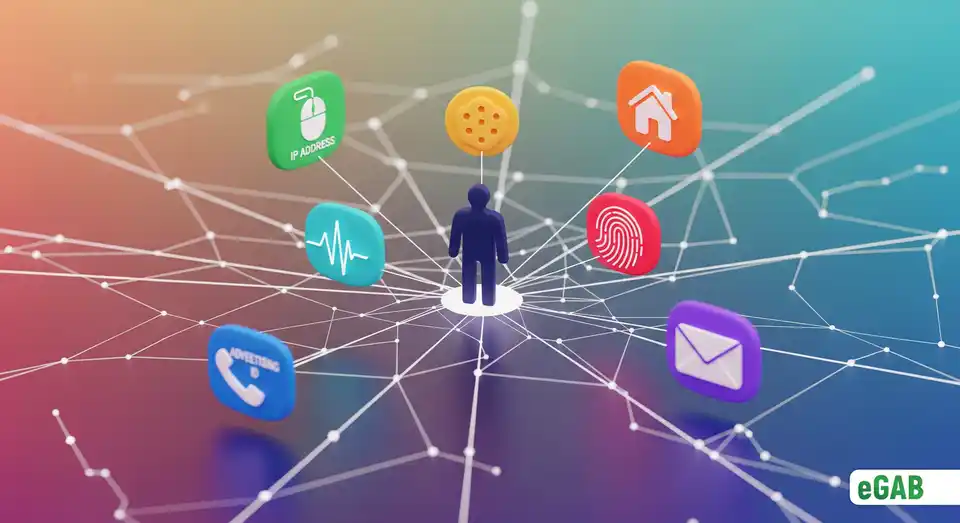
What Are the Penalties for Not Complying with GDPR?
Let's be clear: GDPR isn't a set of polite suggestions; it has serious teeth. The GDPR fines and penalties for non-compliance are designed to be a powerful deterrent, making sure even the world's biggest corporations take their data protection duties seriously. So, how much are the fines for GDPR non-compliance? The fines are split into two tiers, and the tier that applies depends on the nature and seriousness of the violation.
- The Lower Tier: For less serious violations, a company faces a substantial fine of up to €10 million or 2% of its worldwide annual revenue from the previous fiscal year, whichever is higher.
- The Upper Tier: For more severe violations, the fines are genuinely massive. This includes actions like violating the core data protection principles or ignoring your rights as an individual. A significant data breach that results from poor security often falls into this category. In these situations, fines can soar to €20 million or 4% of a company's worldwide annual revenue , whichever is higher.
For a multinational tech giant, that 4% can easily add up to billions of dollars. Meta, for example, was hit with a record-breaking €1.2 billion fine for violations related to international data transfers. You can find a detailed and current list of all fines issued by checking the GDPR Enforcement Tracker database. But it's not just about the money. Data protection authorities have other powers they can use. They can issue official warnings, enforce temporary or permanent bans on data processing, and order a company to bring its operations into full compliance. These measures can be just as disruptive to a business as any financial penalty, which makes full GDPR compliance a non-negotiable for modern business.
Your next step: The next time you're Browse a service online, take a second to scroll to the page footer and click on the "Privacy Policy." Check if the policy specifically mentions GDPR or your rights as a user. It’s a quick and simple way to gauge whether a company takes its data protection responsibilities seriously.
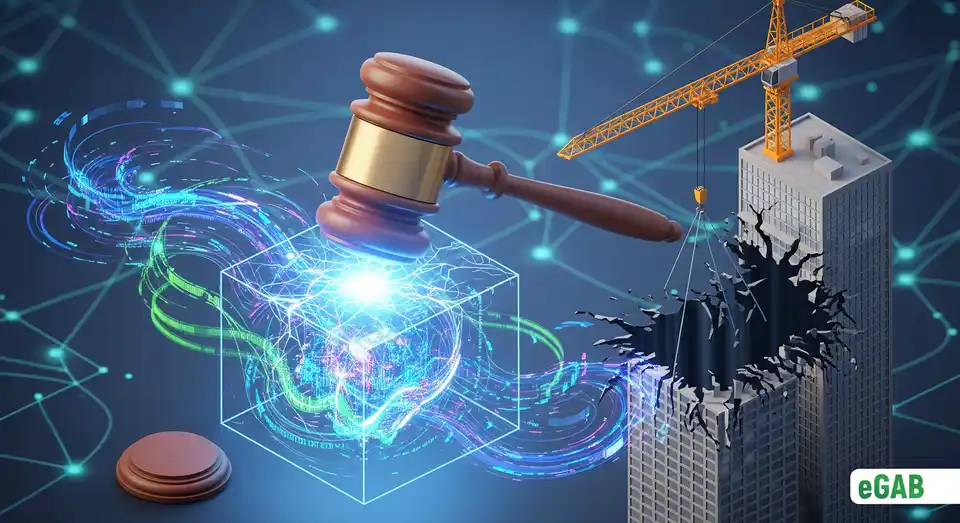
Summary: Your Digital Rights, Redefined by Law
The General Data Protection Regulation is far more than just EU bureaucracy; it's a fundamental shift in the digital world. Its goal is to put you firmly back in control of your personal information. At its heart, GDPR runs on a simple but powerful idea: your data is your property.
It achieves this by establishing seven core principles . These are rules like lawfulness, data minimisation, and robust security that act as a non-negotiable code of conduct for any organisation. This rulebook applies anywhere in the world, as long as a company handles data from people in the EU. These aren't just suggestions-they're the bedrock of the law.
To make sure these principles have real power, GDPR gives you eight specific individual rights . You can think of these as your digital superpowers. They include the right of access to see what a company holds on you and the famous "right to be forgotten" to have your data deleted. The law's reach is intentionally broad, defining personal data as everything from your name and email to your IP address and even cookie identifiers. It also gives extra protection to sensitive information like your health data or political opinions.
And how does it make sure every organisation takes this seriously? GDPR is backed by huge penalties. With fines that can reach up to €20 million or 4% of a company's global annual revenue , this regulation has serious teeth. This approach transforms data privacy from a corporate afterthought into a critical business priority. In short, GDPR creates a unified framework-a space where transparency is mandatory, your rights are protected, and accountability is enforced.
